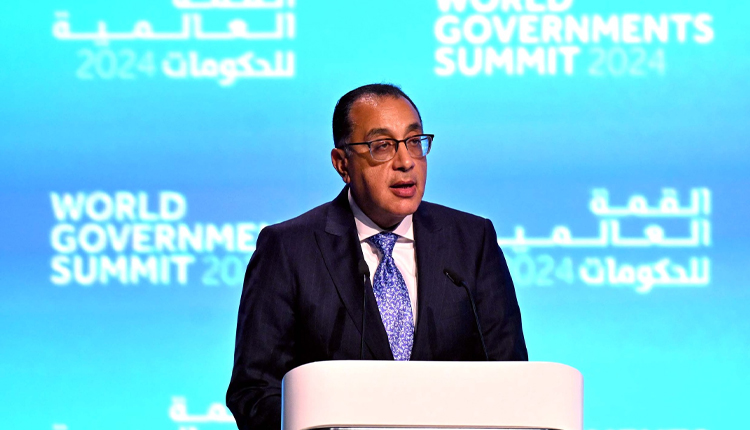Egypt made significant efforts to improve economy – PM
Egyptian Prime Minister Dr Moustafa Madbouly highlighted on Monday the Egyptian government’s progress in building a resilient economy, and its initiatives and policies to enhance economic stability.
“The Egyptian government has also implemented 144 reform measures between May 2022 and September 2023 to support the private sector. These reforms are intended to improve Egypt’s business environment and expand the country’s economy. It has exerted tremendous efforts to improve the performance of key economic sectors such as agriculture, industry, telecommunications, and information technology, with the goal of increasing their contribution to the gross domestic product to 50 per cent by 2030,” he illustrated.
Addressing the World Government Summit in Dubai, he said that modern governments face numerous challenges, including the economic impact of complex global crises, which led to the highest inflation rates in decades.
“The Egyptian government has implemented various strategies to counteract the adverse global economic effects and made structural changes to promote private sector involvement in growth initiatives. It is working to increase partnership between the public and private sectors. More than 1000 private companies are currently participating in large-scale national projects to improve infrastructure development in the country,” he said.
He further highlighted the state’s efforts to alleviate the burdens on the neediest strata of society, launching the Decent Life initiative which is Egypt’s largest development programme that has been recognised by the United Nations as a leading international practice for promoting sustainable development goals.
The prime minister highlighted the numerous challenges that modern governments are facing, particularly the economic impact of global crises. These crises have led to high inflation and a slowdown in global economic growth, which is expected to continue in the coming years. The International Monetary Fund (IMF) estimates that the pace of growth will be lower than the historical levels seen from 2000 to 2019, he added.
“The developing countries are facing challenges in financing the Sustainable Development Goals, with an estimated investment gap of around $4 trillion, including $1 trillion for the transition to renewable energy, according to the United Nations. Additionally, the rapid pace of technological advancements in the industrial revolutions is expected to transform labour markets in these countries, with between 25-40 per cent of jobs being affected by the spread of artificial intelligence applications,” he said.
He stated that the state has implemented several national agricultural projects to increase the agricultural area by over four million acres as part of its efforts to enhance food security, bringing the total cultivated area to approximately 10 million acres.
He pointed out that the government also plans to raise the manufacturing sector’s contribution to the gross domestic product (GDP) to 20 per cent by 2030, which involved measures to promote industrial investment, including streamlining approval processes, providing industrial land grants, and localising 152 industrial investment opportunities.
Madbouly highlighted the tourism sector’s impressive resilience in Egypt, emphasizing its growing significance to the country’s economy. The sector achieved a remarkable 28 per cent growth rate in the fiscal year 2022/2023, outperforming other economic sectors.
The Prime Minister concluded that the government’s goal to raise the contribution of renewable energy to 42 per cent of the total energy capacity by 2030, as part of the country’s transition to a green economy.


